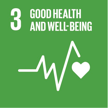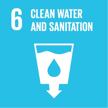About this project
The Amarika community in Otamanzi Constituency in Omusati Region is one of the hardest droughts hit communities in Namibia suffering from water scarcity, unreliable water supply and food insecurity. The option to get clean drinking water to Amarika via a pipeline is not feasible at this moment because the national water supply has argued that the long distance from the water source will affect the water pressure. Even though there is plenty of underground water in the area, it is very salty, making it impossible for human consumption and thus requires desalination. The Community of Amarika have benefited from one of the sophisticated desalination plants but it is currently not functioning due to lack funds to operate the extremely costly plant. Currently, the community water supply process is through water tankers, transported from the nearest town, which is 70 Km away. This option is 1) equally costly 2) very unpredictable as it is dependent on availability of transport and 3) The supplied water is mostly for the community clinic and school, thus leaving out households’ dependent on surplus (if any). Because of this situation, community members have resorted to digging wells to obtain water for their household use. This water is very salty, greyish and obviously not fit for human consumption, causing health problems such as diarrhoea. The permanent dug well has also become hazardous to the community and have in the past claim many lives through drowning. This is what the Rural Amalika Rainwater Harvesting Project (RARHP)-Namibia project will be addressing.
The project will maintain quality controlled and well maintained 10 rooftop rainwater harvesting systems that will be integrated into the regional council for maintenance and the project implemented can be adapted to household levels and other areas facing water scarcity.
The feasibility of the project is high because it uses simple, flexible technologies that are easy to maintain, and the system will be operated and managed by the owners. Water scarcity is a national issue in Namibia with a lot of communities experiencing it. The situation is common that, it was even reported in the Namibian Newspaper, dated 2 June 2020 of the San community at Omaueuozonjanda in the Epukiro constituency begging government for provision of water. All these points to possibilities of replication and scaling up.
Goals and Objectives
Project Goal: To ensure sustainable and clean water availability for the Amarika community enhancing diversification of livelihoods
Objectives for this project entail:
o To ensure water availability
o To improve household food security and health through gardening and safe drinking water
o To alleviate poverty and generate income through the possibility of gardening
Expected result
o Ten (10) operational rain water harvesting system constructed in the
targeted areas.
o Increased awareness on rainwater harvesting among stakeholders and beneficiaries
o Reduction in the number of community members dependent on wells with improved health
Sustainable Development Goals
About me / organisation
Jacobine Taukondjele Amutenya
Jacobine Amutenya is a 32 year old Namibia female who hold a Bachelors in Computer Science as well as a Masters in Hydroinformaitcs, Jacobine is currently employed at The National Commission on Research Science and Technology as a Technologist whose roles is to manage various research, science and Technology projects. Jacobine previously also worked as a Hydrologist under the Ministry of Agriculture Water and Forestry for 6 years. She is very passionate about the Namibia community and would like to see every Namibian has access to clean and safe water.


